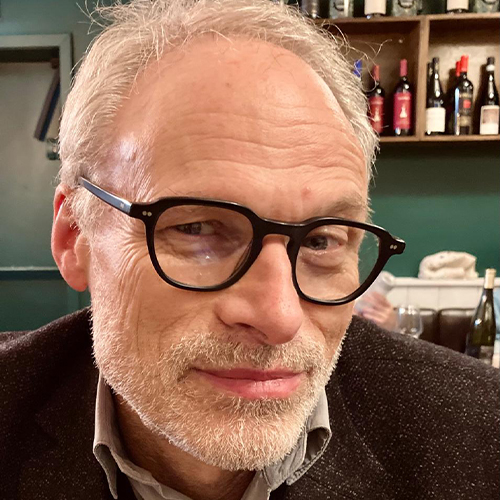
I hope the Congress can open up the enormous field of what there is starting from the non-existence of the sexual relation. Because there is no sexual relation, there is love, and art, and literature, and the four discourses. And psychoanalysis! Humanity itself. It's the "civilizing" function of the relation that does not exist.

The relation between a man and a woman is built on the foundations of the "non-existent" sexual relation, and is based on the sinthome. This is how Lacan refers to it in Seminar XXIII:
"Indeed, if non-relation stems from equivalence, then relation is structured to the extent that there is no equivalence. Therefore, there is both sexual relation and no relation. Where there is relation, it is to the extent that there is sinthome, that is to say, to the extent that the other sex is supported by the sinthome."[1]
Then, could it be considered that "there is a relation" when versions of the exile of the sexual relation resonate in each of the partners?
[1] Lacan, J., The Seminar of Jacques Lacan, Book xxiii, The Sinthome, ed. J.-A. Miller, trans. A.R. Price, Cambridge: Polity, 2016, p. 84.

This is obviously not a murder that would send someone to the criminal courts. In fact, these bloody detours should only be taken, except in cases of psychotic passages to the act, as the imaginarisation of the structure specific to fantasy. Mutilating a man [in the other scene] to the point of death thus may be simply a way for a woman to signify that this man is hers. The fantasy of killing men should therefore be elevated to the dignity of A child is being beaten. J.-A. Miller also specified during the "Parliament of Montpellier" that the male body—at least certain parts of it—represented for many women that of an unconscious belonging to the female body.[1]
[1] Miller, J.-A., et al., « Facettes de la dernière clinique de Lacan. Autour du Séminaire xxii ». unpublished.

In The Seminar, Book xxiii, Lacan states that "the core symptom, […] is formed from the specific shortcoming of sexual relation".[1] He also proposes that this lack takes on a form and that it is "not just any old shape".[2] After all, what is the form that appears as an effect of the non-existence of the sexual relation? If it is not just any form, it is because it is not confused with the signifier, since "it is grounded from the real excluded from meaning".[3] Can this form, that the non-sexual relation acquires and that presents itself as a style that dominates the bonds of love, be understood as a sexual relation that exists?
[1] Lacan, J., The Seminar of Jacques Lacan, Book xxiii, The Sinthome, ed. J.-A. Miller, trans. A.R. Price, Cambridge: Polity, p. 56.
[2] Ibid.
[3] Ibid.,, p. 51.

The meaning we discover in analysis is sexual and replaces what the sexual lacks
The non-relation interprets what Freud said about sexualityIt should be noted that Freud himself does not push the unconscious in sexuality to its ultimate consequences, since he considers it as producing meaning. For Lacan, on the other hand, the unconscious is not at all what makes meaning; the unconscious only encrypts the jouissance of the drive. The work of encryption is the mark of the unconscious, "for nowhere, under any sign, does sex enter into a relation."[1] If it is not the unconscious that produces meaning, if it only encrypts, then analytical practice has no business giving meaning to what can be deciphered in the formations of the unconscious.
[1] Lacan, J., "Introduction à l'édition allemande d'un premier volume des Écrits," Autres écrits, Paris, Seuil, 2001, p. 553.

Lacan's aphorism causes a stir because it makes a hole. Science and capitalism are constantly producing relations by virtue of the laws of language: S1—S2 is the elementary root of this. The there is no relation […] is a low murmur against a backdrop of: everything is relation […]. But when we read The Interpretation of Dreams, what do we discover? That Freud is less interested in relations than in substitution, displacement, condensation, and the cutting up of signifying material […]. Here we have a trail: opposed to relation and linkage is substitution—perhaps what Lacan calls suppléance finds its ground here—but also its cut.

